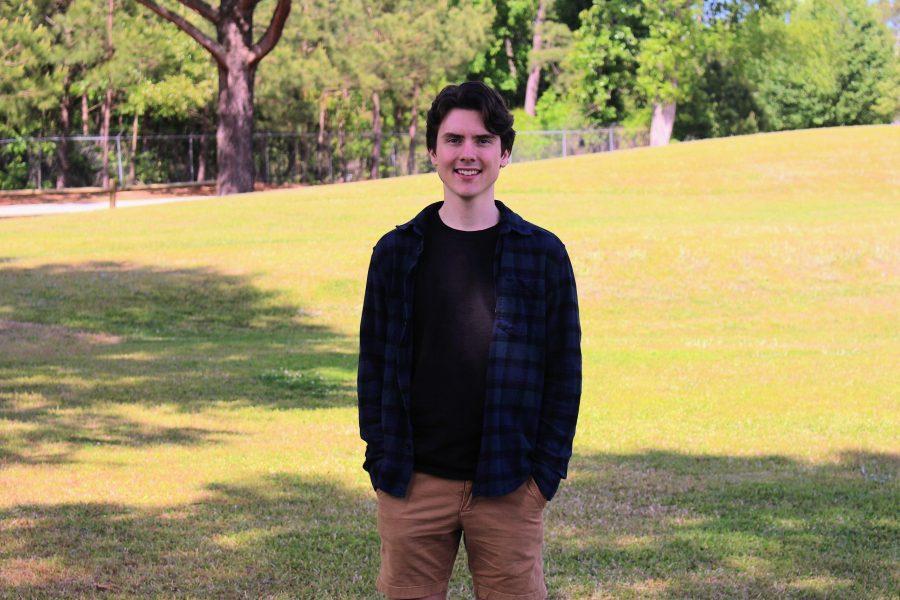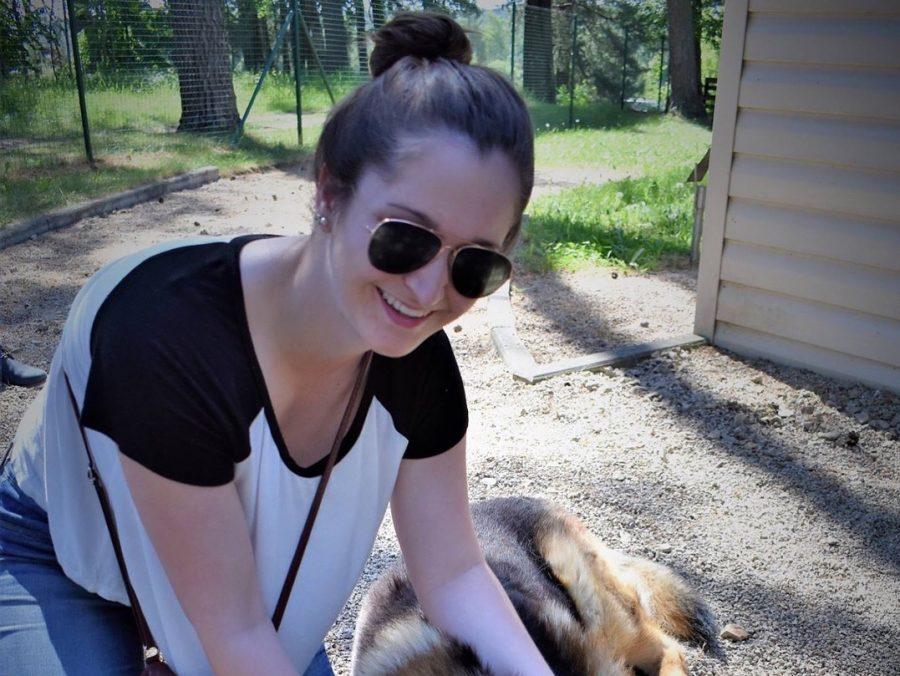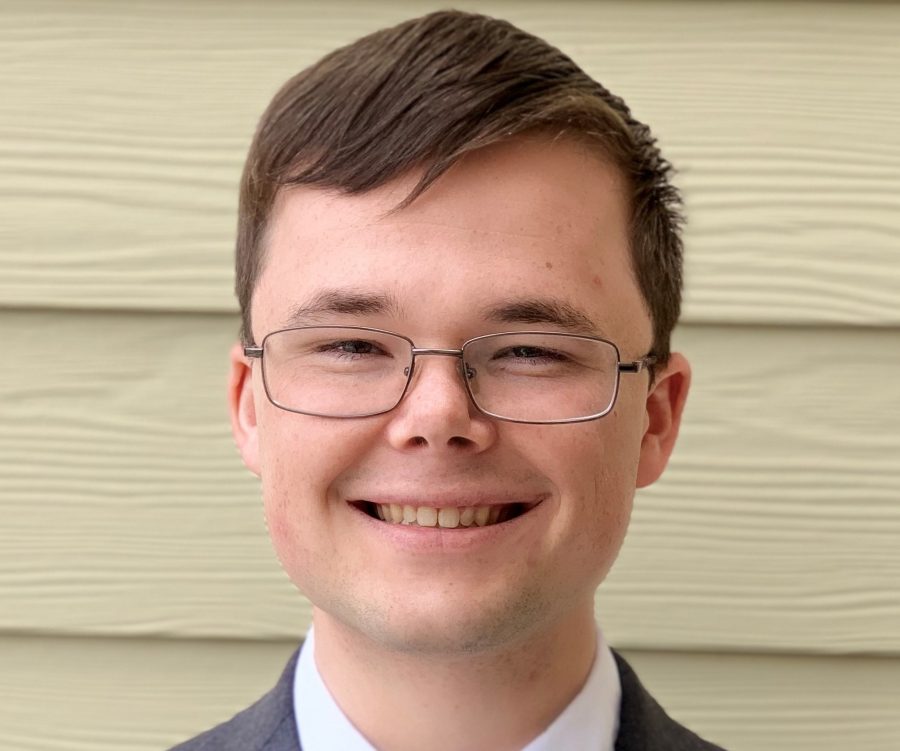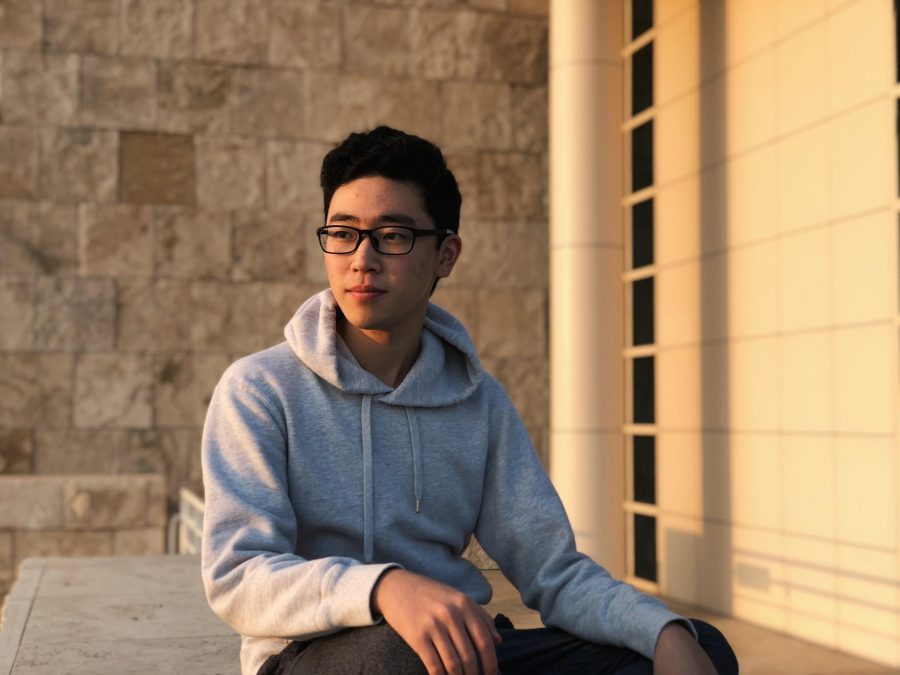Matthew Capps, from Coates, N.C., entered college as a pre-med student. He will graduate as an anthropology major, having minored in linguistics, cultural heritage preservation and environmental studies.
He decided not to continue on the pre-med track after his first semester at Wake Forest, so he began searching for other callings. “I picked some random classes that I thought I would be interested in, and one was Introduction to Archaeology with Dr. Eric Jones.” Capps found in anthropology a compelling intersection of the humanities, social sciences and natural sciences, and the multiplicity of perspectives it offered enabled him to consider complex and important questions in a variety of ways.
After completing an archaeological field school with Jones, Capps felt assured that anthropology offered an abundance of interesting subject matter. At Jones’ research site, Capps was able to apply what he had learned in his introductory course and develop new technical skills while expanding his knowledge of local history.
Jones would continue to have a formative impact on Capps’s growth as an anthropologist, and would eventually serve as Cappss honors thesis and cultural heritage preservation advisor. For his honors thesis, Capps studied food remnants at Jones’ research site in an effort to understand the methods of resource procurement and subsistence practiced by its indigenous occupants. Jones can certainly attest to Matt’s proclivities as an anthropologist.
“The thing about Matt that most impresses me is his ability to connect concepts, ideas, subfields, fields of study, etc. to one another. He embodies, not just applies it in his work, but embodies, holism as well as anyone I know. Matt can see the big picture so incredibly well, even beyond the confines of academi,” Jones said. “He effortlessly connects what he has learned in the classroom as easily to his environmentalism, his music, and his comedy as he does to his research (which is phenomenal, by the way). That ability is what makes him such a good anthropologist and so well-rounded.”
Capps recalls reading Keith Basso’s “Stalking with Stories,” an inquiry into the moralistic nature of Western Apache storytelling. This article, which he found particularly compelling, inspired Capps’s outlook regarding storytelling in anthropology.
On top of the trove of technical skills, theoretical knowledge and historical context he gleaned from his anthropology education, Capps believes he also improved his critical thinking skills.
By “questioning assumptions and theoretical claims that people put out there, and analyzing politics and events in the world critically and thinking about how it affects people and cultures and how certain things don’t affect people in the same way and how intersectionality plays a role in people’s lives,” anthropology students, Capps explained, are well equipped to address timely issues in local and global contexts.
Combining his anthropological focus with three additional minors, Capps feels well tooled to tackle important problems. His interests in landscape alteration, interactions between humans and their environments and agricultural methods are deeply rooted in environmental studies, and his interest in interpreting artifacts, as well as the impact of this process on conceptions of history, are represented in cultural heritage preservation. His interest in linguistics (another subfield of anthropology) extends to the language, discourse and stories associated with artifacts.
Many of Capps’s friends at Wake Forest were also anthropology majors, and he felt that his cohort was very engaging. However, his social life introduced him to people with varying interests and perspectives. Spending his latter three years living in Wake Forest’s Sustainability House, Capps met a slew of motivated and compelling students.
While this experience bolstered his interest in environmental issues and sustainable practices, it also allowed him to focus on creating sustainable friendships. Living with what was effectively an improvised “family,” Capps created a variety of meaningful connections with students he may otherwise not have known.
To incoming freshmen, Capps recommends seeking out similarly-interested peers. While he fears that freshmen often feel intimidated by the prospect of creating new social networks, especially outside of greek life, Capps can attest that “seeking out people that you can be yourself around and groups that have similar interests is important, and recognizing that they’re there is important.”
In the fall, Capps will enter the Ph.D. program at the University of Pennsylvania, where he will continue to focus on archaeology. He feels that in his professional career he will return to archaeology in the American southeast.









